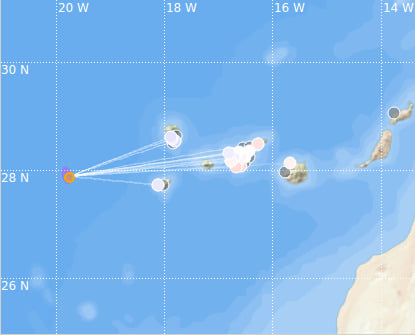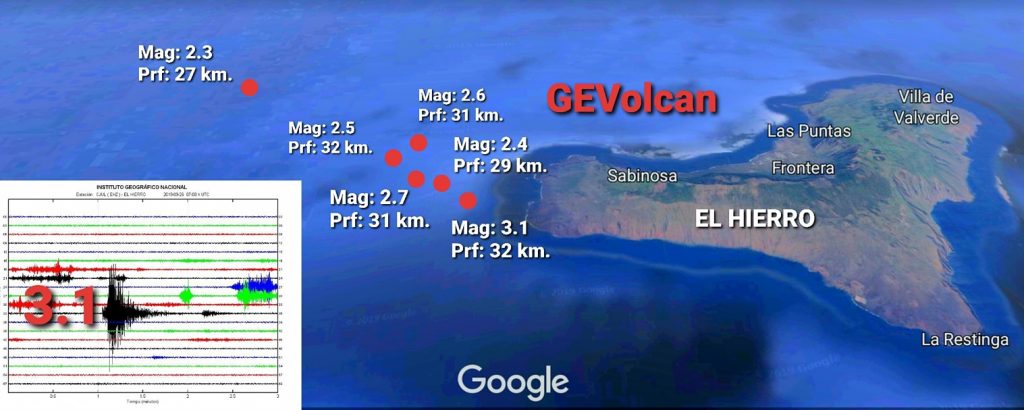The Book of Daniel is among the most controversial books in the Bible, dividing scholars over whether it was actually written by the Prophet Daniel or if it was a late forgery.
In the third-century a heretic named Porphyry declared Daniel was written by Judas Macabeus around the time of Antiochus Epiphanes, around 170-163 BC — about four hundred years after Daniel.
The main reason for rejecting Daniel is his incredibly accurate prophecy regarding the four world empires that were to come.
It takes a dedicated critic to deny Daniel’s authorship. Daniel predicted the rise of Alexander the Great and his Greek empire, which defeated and replaced the Persian Empire in 334 BC.
Under Alexander, all subjects of his empire had to use Greek as their working language.
In obedience to that law, a group of rabbis and Jewish sages undertook to translate the Jewish Scriptures into Greek. Their final work, the Septuagint, translated in the 3rd century BC, and well before Macabeus, included the Book of Daniel.
There are lots of other examples that shatter the contention that Daniel is a forgery, but the most compelling evidence favoring Daniel’s authenticity is Christianity. Sir Isaac Newton argued that Christianity itself rests on Daniel’s authenticity.
Why? Because of the testimony of
Matthew 24:15 and
Mark 13:14. The Lord Jesus Christ referred to the Book of Daniel and He called Daniel a Prophet. If Daniel was a forgery or a mythical character, then Jesus didn’t know that.
If Jesus didn’t know that, then He could not have been the Son of God. If Jesus was not the Son of God, then He was not qualified to pay your sin debt, your faith is in vain and you remain yet dead in your sins.
It is therefore not possible to reject the historicity and authenticity of Daniel without necessarily rejecting the entire Bible, including the New Testament. Which is, of course, the position taken by Daniel’s critics.
But apart from the obvious problems already articulated, there is one more logic problem associated with dating Daniel to the Maccabean Period. Even if that could explain Daniel’s incredible accuracy in predicting the fall of Babylon and the rise and fall of the Persian and Greek Empires, the Roman Empire was yet future.
Daniel had more to say about the rise and fall and rise again of the Roman Empire than he did of any other world empire — and even late-dating Daniel doesn’t explain the prophetic accuracy of the book that bears his name. In 170-163 BC, Judea was under Greek, not Roman rule.
The Roman Republic had not yet become the Roman Empire when Daniel’s critics claim the Book of Daniel was written. So even if it was written by Judas Maccabeus, (it wasn’t) the critics are still left scratching their heads, since even with the later date, most of Daniel’s prophecy was yet future.
It is a ridiculous, desperate effort by those who just can’t accept the supernatural explanation to find one that they can — even if their preferred explanation is even less defensible.
To accept Daniel at face value is to admit that God exists, since if Daniel is the actual author of the Book, then no other possible explanation makes sense.
Assessment
“…For I am God and there is none like Me, Declaring the end from the beginning, and from ancient times the things that are not yet done, saying, My counsel shall stand, and I will do all My pleasure:” (Isaiah 46:9-10)
In Daniel’s day, Rome was not yet even a republic, let alone an empire. The city of Rome was founded by Romulus at just about the same time that Daniel was interpreting King Nebuchadnezzar’s dream.
The king had dreamed a dream that he couldn’t remember, but it greatly troubled him. Eventually, Daniel was summoned to both reveal what the dream was and interpret it.
The king dreamed of a statue, or image of a man with a head of gold, chest and arms of silver, belly and thighs of brass, two legs of iron and ten toes of iron mixed with clay.
THIS is the dream that confounds Daniel’s critics. By the time of the Maccabean Period, the empire of Babylon had already been defeated by Persia, which had been already defeated by Greece, which was already beginning to show signs of crumbling.
The two legs of iron, signifying Rome, were still future. By the fourth century, the Roman Empire grew too large to be administered from Rome and so the Empire was divided into the Western, Roman Empire and the Eastern Byzantine Empire, with its capital at Constantinople.
Rome was conquered by the barbarians in 476 AD. Rome’s political destruction was complete – a deadly wound directly to one of the heads of the empire, fulfilling the Apostle John’s prediction of a deadly head wound:
“And I saw one of his heads as it were wounded to death; and his deadly wound was healed: and all the world wondered after the beast.” (Revelation 13:3)
The Prophet Daniel predicts that the final form of the revived Roman Empire will be a confederation of ten kingdoms that were part of the two legs of iron. With the revival of the Roman Empire, that deadly wound is healed.
“And he exerciseth all the power of the first beast before him, and causeth the earth and them which dwell therein to worship the first beast, whose deadly wound was healed.” (Revelation 13:12)
It is at this point that interpreters and Bible critics and Bible teachers and students of Bible prophecy branch out into all kinds of areas. Some are convinced the deadly wound signifies a failed assassination attempt against the antichrist.
Others focus their attention on the identity of the first beast, or the system overseen by the second beast, or are mesmerized by the concept of the Mark of the Beast and how it will be administered.
All these things are unknown and, I believe, unknowable, until the time appointed.
And all the speculation, (since it is all different and things that are different cannot be the same), throws out the baby with the bath water, can’t see the forest for the trees, is missing a piece of the puzzle, is out wandering in the desert, not to mention all the other metaphors I can’t think of.
If you back up to the point before the speculation begins, THAT is where the real meat is to be found.
At the time the Prophet Daniel was telling Nebuchadnezzar that the as-yet future Roman Empire would remain a force until it is abolished by Jesus Christ in the final hours of human government, an unwashed peasant named Romulus was founding a settlement along the Tiber River, declaring himself king.
Twenty-six hundred years after Daniel and sixteen hundred years after the barbarians entered the gates of Rome, the European Union declared itself the revival of the Roman Empire.
Whether it currently consists of ten nations or twenty-seven at this particular point in history is largely irrelevant. History is still unfolding. In the end, it will be fulfilled precisely as prophesied.
Isaiah 46:10 teaches us that prophecy starts at the end and works back to the beginning.
In 1948, for the first time since Nebuchadnezzar captured Jerusalem (and Daniel) the nation of Israel was revived and restored to the same piece of real estate from which they had been ejected by the Romans in AD 70.
For a nation of antiquity to be conquered, scattered and then restored in such a manner had no equal in history. But this event was more than an historical first — it was the direct and unambiguous fulfillment of Bible prophecy for the last days.
At the exact same point in history, the six nations of the Benelux formed a cooperative economic union that marked the beginning of the revival of the Roman Empire. The revival of an historical empire such as we’ve witnessed in our generation is also an event without equal in the annals of history.
To assume both events happened at exactly the same point in history — by coincidence — takes a faith greater than I can muster up.
The world is in a state of chaos and confusion unlike anything in living memory — for the first time in the history of mankind, mankind faces an existential threat of extinction at his own hand.
Uncertainty and fear color every waking moment as we wonder if our world will look the same in the morning as it did when we went to bed the night before.
Our systems and infrastructure are in shambles, people are rioting in the streets, the economy is in the tank and everywhere one turns, they are talking about a New World Order.
There is no need to speculate. Just look at what is out there in the open.
If you know Jesus Christ (and He knows you) than what is unfolding in our world is proof positive that the world is wrong, God is not dead, Jesus Christ remains on the throne and remains intimately involved in the affairs of men.
“Let not your heart be troubled: ye believe in God, believe also in Me. In My Father’s house are many mansions: if it were not so, I would have told you. I go to prepare a place for you. And if I go and prepare a place for you, I will come again, and receive you unto Myself; that where I am, there ye may be also.” (John 14:1-3)
Everything is unfolding according to Plan and what remains unfulfilled will be fulfilled in this generation just as literally as those that have already been fulfilled. So we have nothing to fear.
“Peace I leave with you, my peace I give unto you: not as the world giveth, give I unto you. Let not your heart be troubled, neither let it be afraid…And now I have told you before it come to pass, that, when it is come to pass, ye might believe.” (John 14:27,29)
It IS coming to pass. And I believe.
Marantha!

